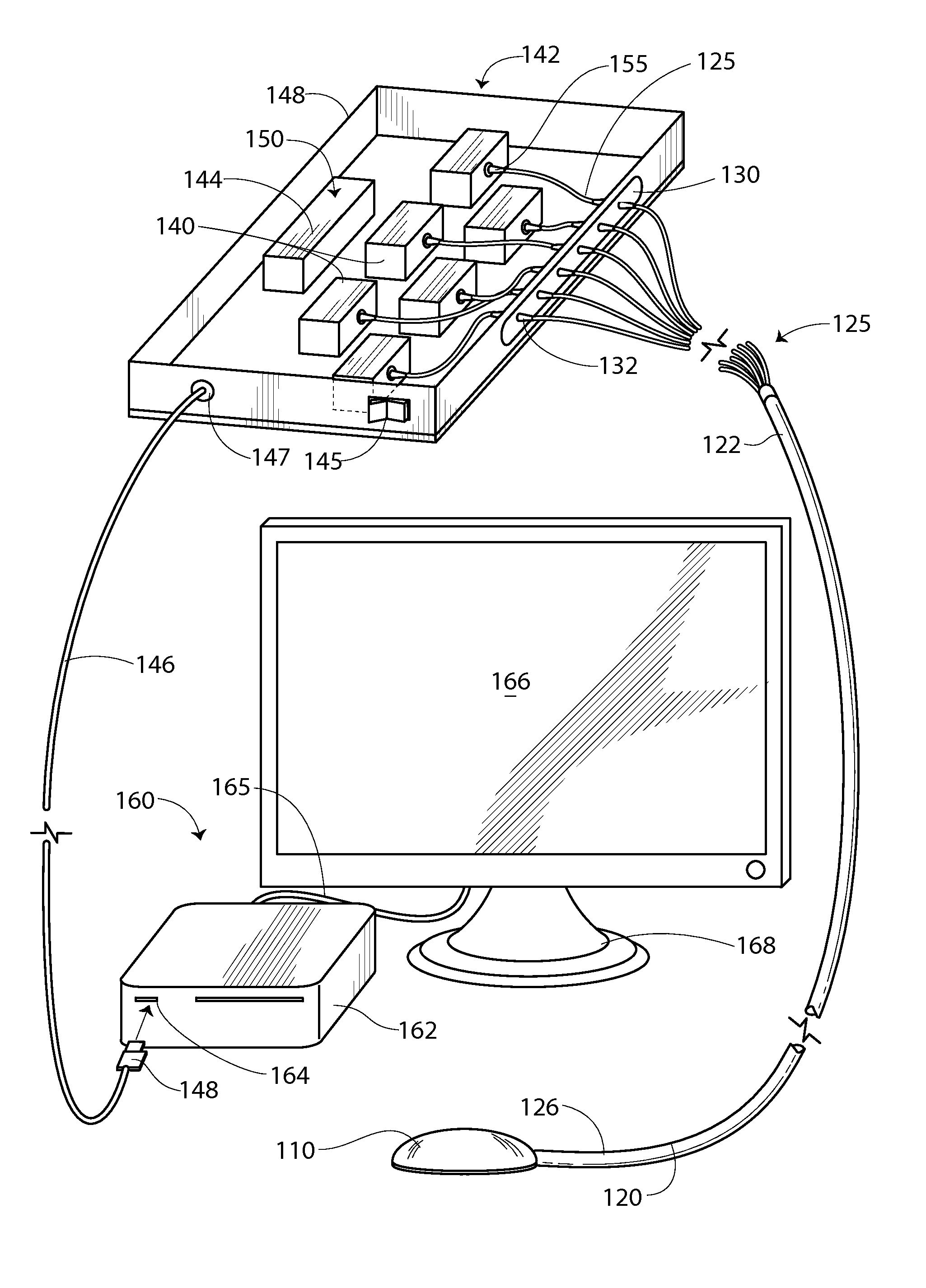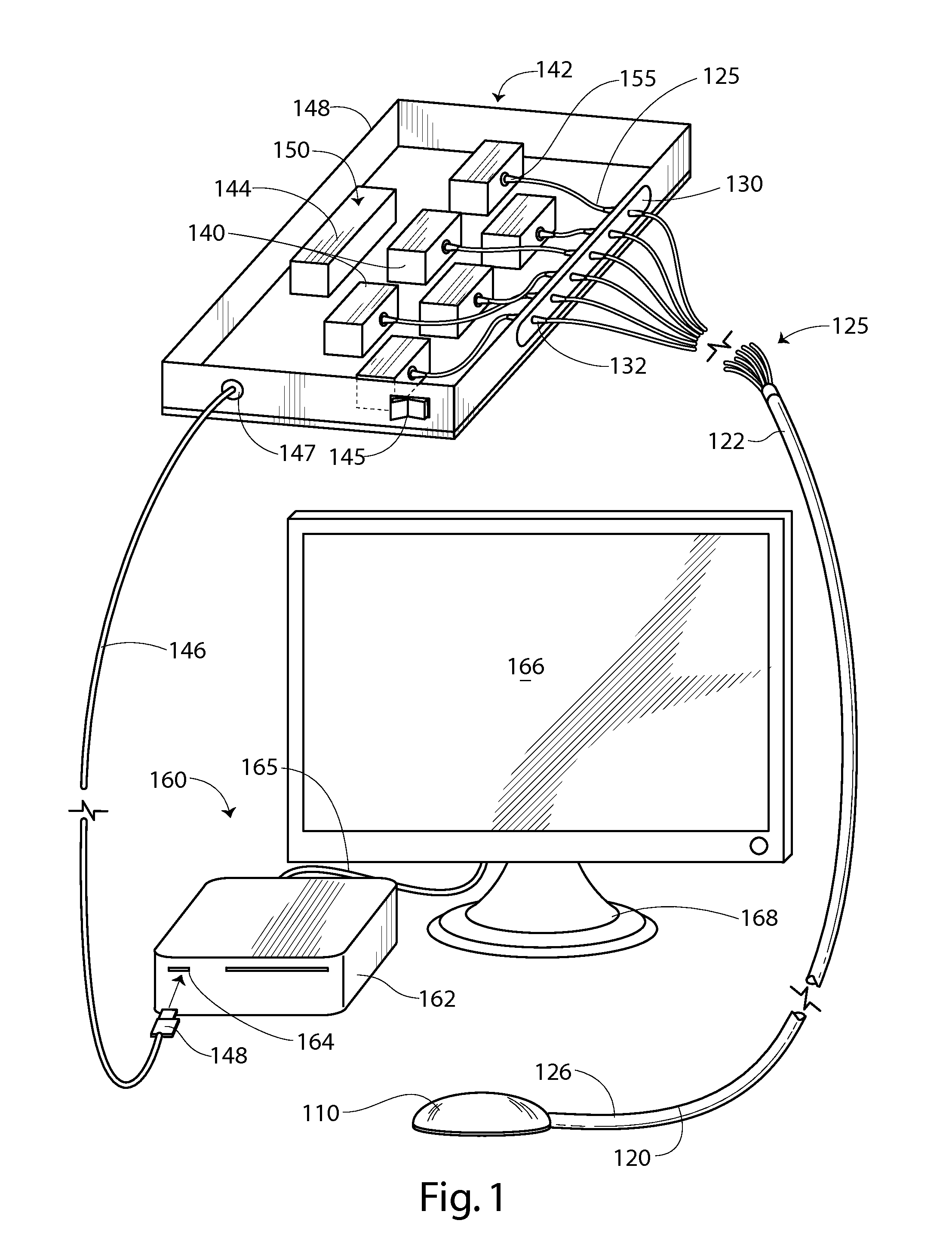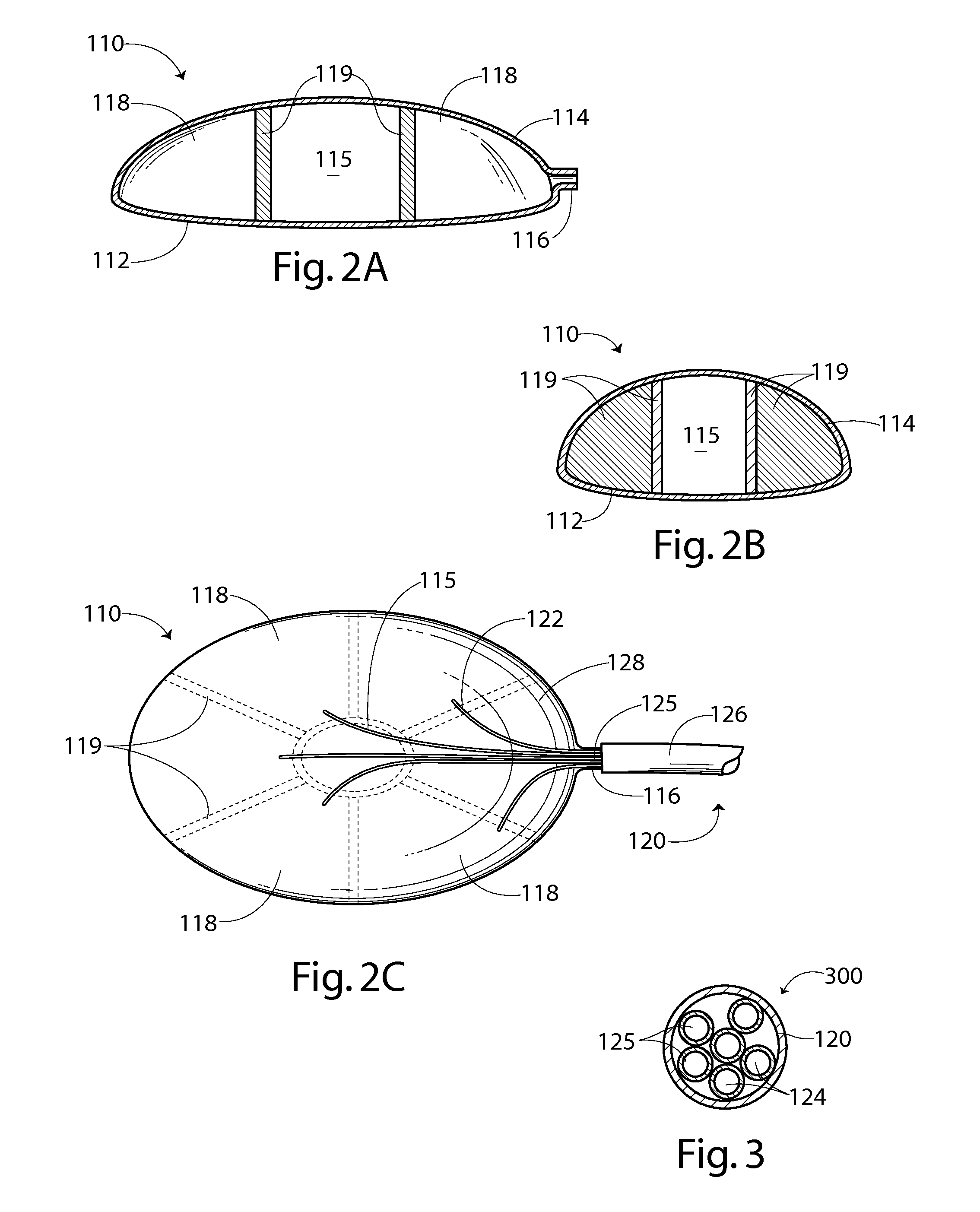Methods and Systems for Lingual Movement to Manipulate an Object
a technology of lingual movement and object manipulation, applied in the field of therapeutic devices, can solve the problems of physical difficulty in chewing food, lack of muscular ability of individuals to grind food with tongue and teeth, and difficulty in older patients
- Summary
- Abstract
- Description
- Claims
- Application Information
AI Technical Summary
Benefits of technology
Problems solved by technology
Method used
Image
Examples
Embodiment Construction
[0066]FIG. 1 is a perspective view of an intra-oral system 100 according to the present invention, in one embodiment.
[0067]The intra-oral system 100 first includes a mouthpiece 110. The mouthpiece 110 is configured to be selectively inserted into an individual's mouth (not shown). The individual may be a patient who is in need of therapy to develop the intra-oral musculature. Such a patient may be, for example, a stroke victim or the victim of a head or neck injury. Alternatively, such a patient may be a child who suffers from congenital limitations in chewing food and / or swallowing food.
[0068]The mouthpiece is preferably fabricated from an elastomeric material. Suitable materials may include polyisoprene rubber, chloroprene rubber, neoprene rubber, styrene butadiene rubber, and acrylonitrile butadiene rubber. Additional suitable examples include silicon, ethylene propylene diene methylene, polyvinylchloride, polyethylene, polyurethane, urethane-coated nylon, and ethyl vinyl acetate...
PUM
 Login to View More
Login to View More Abstract
Description
Claims
Application Information
 Login to View More
Login to View More - R&D
- Intellectual Property
- Life Sciences
- Materials
- Tech Scout
- Unparalleled Data Quality
- Higher Quality Content
- 60% Fewer Hallucinations
Browse by: Latest US Patents, China's latest patents, Technical Efficacy Thesaurus, Application Domain, Technology Topic, Popular Technical Reports.
© 2025 PatSnap. All rights reserved.Legal|Privacy policy|Modern Slavery Act Transparency Statement|Sitemap|About US| Contact US: help@patsnap.com



